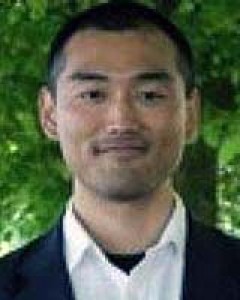Dear Editor
The COVID-19 pandemic has not only been affecting people’s health due to fear and symptoms of the infection, but has also had negative social impacts on human interaction – especially on the rural elderly of Japan preparing for the celebration of Obon. Obon, a long holiday week in August, is unique to the Japanese people. It is a special, traditional Japanese event related to Buddhism1. It is believed that during Obon the spirits of the ancestors come back to each house and rest there. The Japanese go back to their hometowns and celebrate Obon to ensure the happiness of their ancestors in heaven. Notably, the rural elderly admire their ancestors sincerely and, during the Obon week, they get together and hope for their ancestors’ fulfilled lives in heaven.
The COVID-19 pandemic has disrupted the celebration of Obon this year. The rural elderly have suffered not only from the mental stress of possible infections and the pain of not being able to see their relatives and loved ones, but also from the physical stress of the preparations of Obon. Working in the rural Japanese community, one often listens to elderly patients’ worries regarding COVID-19 and Obon. Rural family physicians should listen to the accounts of the difficulties experienced by the elderly during Obon from their perspective for various reasons.
First, this pandemic has inhibited young people from returning to their hometowns. At present, most COVID-19 cases are from urban areas, and young people in these areas may risk infecting others, even if they are asymptomatic2. They may be anxious about transmitting SARS-CoV-2 to their parents and grandparents, who can become critically ill from the same. Rural areas isolate the elderly and this pandemic has depressed them; the rural elderly cannot meet their children and grandchildren3, despite wishing to meet them.
Second, the rural elderly had to prepare for Obon without assistance from the young. During Obon, to welcome their ancestors, people have to prepare not only food for the celebration, but also clean their ancestors’ tombs and trim the bushes surrounding their homes. Usually, the rural elderly get help from the younger generations during Obon. However, the pandemic has imposed a burden on the rural elderly. Although in urban areas many companies can help provide manual labor to prepare for Obon, rural areas do not have such services; this has forced older people to engage in manual labor that exceeds their physical abilities. Hence, the present condition has increased heat strokes and musculoskeletal disorders among the rural elderly.
During Obon in 2020, keeping in mind the pandemic, rural family physicians should consider the pandemic’s negative impact in terms of social isolation among the rural elderly. They should consider the mental and physical stress among the elderly patients resulting from manual labor, even though the patients themselves may not provide appropriate information regarding their health conditions4. Although the rural elderly may not be able to avoid labor related to Obon, rural family physicians’ continual listening and advice can help alleviate their stress.
Acknowledgements
We would like to thank all the participants of this research.
Ryuichi Ohta and Yoshinori Ryu, Community Care, Unnan City Hospital, Japan
References
You might also be interested in:
2022 - COVID-19 fosters social accountability in medical education

